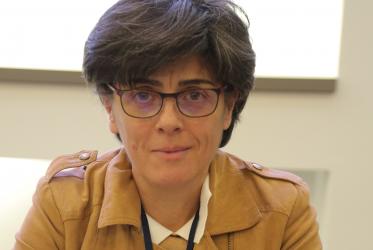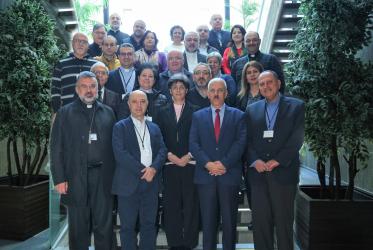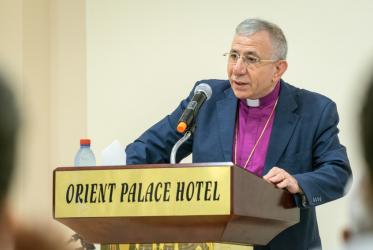Displaying 121 - 140 of 518
Hope prevails in times of crisis in Lebanon
14 September 2020
New student body at Bossey Ecumenical Institute “a source of joy”
14 September 2020
Bishop Younan receives Catholic peace award
26 September 2019
Dr Saïd Ailabouni: God is on the side of rejected, oppressed, occupied
12 September 2019







